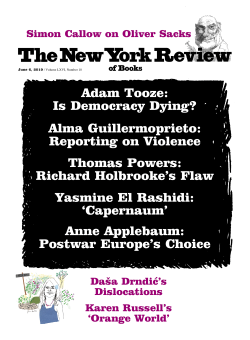In response to:
Dialectics of Enlightenment from the May 9, 2019 issue
To the Editors:
Readers of Anthony Appiah’s instructive, finely reasoned essay “Dialectics of Enlightenment” [NYR, May 9] would have had a more balanced view of Voltaire’s attitude on race (of which Professor Appiah gives a deplorable example) if he had cited or at least mentioned Chapter 19 of Voltaire’s masterpiece Candide, which takes place in the Dutch colony of Surinam. Upon arriving, Candide sees a black (nègre) lying on the ground wearing half a piece of clothing. He “had lost his left leg and his right hand.” Candide asks if his master had inflicted this on him:
Yes, sir,…it is the custom here. They give us a linen garment twice a year, and that is all our covering. When we labor in the sugar factory and the mill happens to catch hold of a finger, they instantly chop off our hand; and when we attempt to run away, they cut off a leg. Both have happened to me, and it is at this price that you eat sugar in Europe.
Candide “turned his eyes towards the poor Black, and shed a flood of tears; and weeping, he entered the town of Surinam.”
Similarly, while Voltaire was undeniably anti-Semitic—and here Professor Appiah’s quotation is one particularly shocking confirmation of this among the many one can find—he condemned the persecution of the Jews by the Inquisition and others in the “Sermon du rabbin Akib” and elsewhere.
David Ball
Professor Emeritus
French and Comparative Literature
Smith College
Northampton, Massachusetts
Kwame Anthony Appiah replies:
Voltaire’s important place in the history of European moral attitudes has much to do with his consistent and principled hostility to cruelty, which is exemplified in the passages Professor Ball mentions. So it’s good of him to remind us that you can be opposed to cruelty, while yet being racist and anti-Semitic. Jeremy Bentham’s case for protecting animals from abuse was predicated on their ability to suffer as we do, not to reason as we can. In the landscape of moral progress, empathy and respect turn out to be different edifices.


